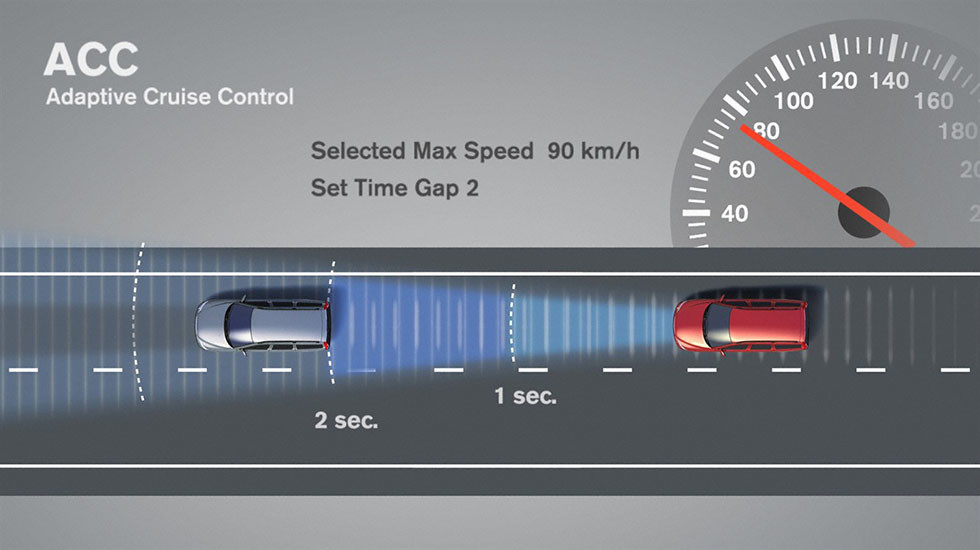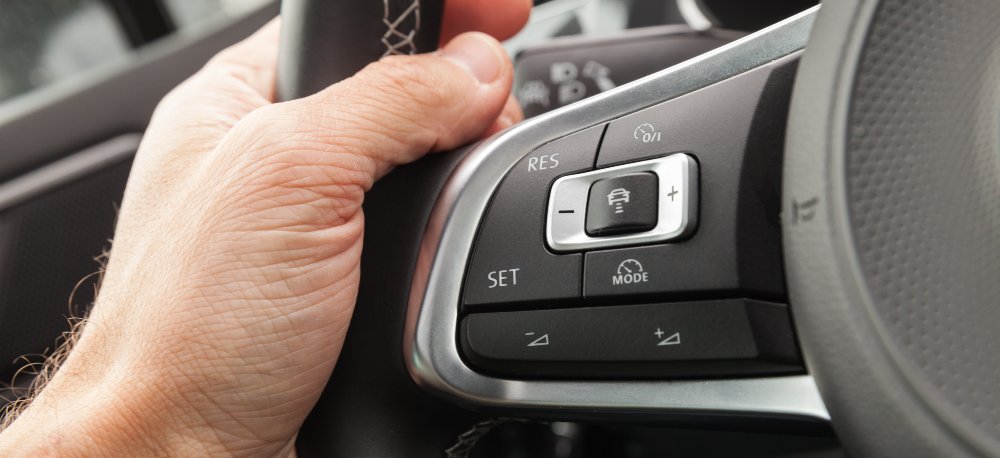Ever feel your leg cramp up on a long road trip? That’s where cruise control comes in, letting you relax and maintain a steady speed. But what if traffic picks up? Enter adaptive cruise control, the smarter cousin of cruise control.
Let’s break down the difference between cruise control and adaptive cruise control:
| Feature | Cruise Control | Adaptive Cruise Control |
|---|---|---|
| Main Function | Maintains set speed | Maintains set speed and adjusts distance to car ahead |
| Uses Sensors | No | Yes (radar or camera) |
| Ideal for | Open highway with minimal traffic | Highway commutes with stop-and-go traffic |
| Safety | Requires driver attention | Requires driver attention, but helps maintain safe distance |
Cruise Control: Set and Forget (Almost)
Think of cruise control as your personal pace keeper. You set your desired speed, and your car magically maintains it. This is fantastic for long stretches of open road, reducing fatigue and keeping you focused on the bigger picture (like that epic mountain range in the distance!).
Here’s the key thing to remember: cruise control maintains speed, not distance. So, if you come up on a slower car, you’ll need to take over and disengage cruise control to avoid a bump.
Adaptive Cruise Control: Your Car Can See!
Adaptive cruise control (ACC) takes things to a whole new level. It’s like having a co-pilot who adjusts your speed based on the traffic around you. Here’s the magic:
- Sensors: ACC uses radar or camera sensors to detect the car in front of you.
- Automatic Adjustments: If the car ahead slows down, ACC automatically reduces your speed to maintain a safe following distance. No more tapping the brakes every two seconds!
- Resume Cruise: Once the coast is clear, ACC smoothly accelerates you back to your desired speed.
So, When Do You Use Each?



- Cruise Control: Perfect for long stretches of highway with minimal traffic.
- Adaptive Cruise Control: Ideal for highway commutes with stop-and-go traffic. It keeps you relaxed while maintaining a safe distance.
Important Safety Reminders:
- Don’t be a robot! Always stay alert and be prepared to take over, especially in bad weather or sudden traffic changes.
- Maintain a safe distance. ACC is an aid, not a replacement for safe driving practices.
- Check your owner’s manual. Every car’s ACC system works slightly differently. Familiarize yourself with its features and limitations.
what should is choose Cruise control or adaptive cruise control?
The choice depends on your driving needs. But with either system by your side, you can enjoy a more relaxed and comfortable highway experience!
Also read – How To Transfer Car & Bike Ownership? Here’s How To Do It Smoothly!
.
.
Top 5 FAQs: Cruise Control vs. Adaptive Cruise Control
What’s the difference between cruise control and adaptive cruise control?
Cruise control maintains a set speed, while adaptive cruise control adjusts your speed to match the car in front of you, keeping a safe distance.
When should I use cruise control?
Cruise control is ideal for long stretches of highway with minimal traffic. It helps reduce fatigue by letting your foot rest off the pedal.
When is adaptive cruise control most helpful?
Adaptive cruise control shines on highways with stop-and-go traffic. It automatically adjusts your speed to the flow of traffic, reducing the need for constant braking and acceleration.
Is adaptive cruise control self-driving?
No! ACC is a driver assistance system. You should always stay alert and be prepared to take over in any situation.
Is adaptive cruise control safer than regular cruise control?
AdAdaptive cruise control can help you maintain a safe following distance, which can be a plus for safety. However, it’s not a replacement for safe driving practices. Always stay focused and be ready to react to changing road conditions.
